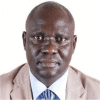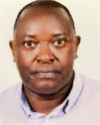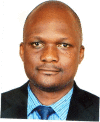The COVID-19 pandemic in the African continent
- PMID: 35501853
- PMCID: PMC9059455
- DOI: 10.1186/s12916-022-02367-4
The COVID-19 pandemic in the African continent
Abstract
In December 2019, a new coronavirus, severe acute respiratory syndrome coronavirus-2 (SARS-CoV-2) and associated disease, coronavirus disease 2019 (COVID-19), was identified in China. This virus spread quickly and in March, 2020, it was declared a pandemic. Scientists predicted the worst scenario to occur in Africa since it was the least developed of the continents in terms of human development index, lagged behind others in achievement of the United Nations sustainable development goals (SDGs), has inadequate resources for provision of social services, and has many fragile states. In addition, there were relatively few research reporting findings on COVID-19 in Africa. On the contrary, the more developed countries reported higher disease incidences and mortality rates. However, for Africa, the earlier predictions and modelling into COVID-19 incidence and mortality did not fit into the reality. Therefore, the main objective of this forum is to bring together infectious diseases and public health experts to give an overview of COVID-19 in Africa and share their thoughts and opinions on why Africa behaved the way it did. Furthermore, the experts highlight what needs to be done to support Africa to consolidate the status quo and overcome the negative effects of COVID-19 so as to accelerate attainment of the SDGs.
Keywords: Africa; COVID; Coronavirus; Coverage; Epidemiology; Essential health services; Health; Immunity; Infectious disease; Pandemic; Vaccination.
© 2022. The Author(s).
Conflict of interest statement
The authors declare that they have no competing interests.
Figures












References
-
- Huang C, Wang Y, Li X, Ren L, Zhao J, Hu Y, et al. Clinical features of patients infected with 2019 novel coronavirus in Wuhan, China. Lancet. 2020;395(10223):497–506. [cited 2022 Feb 26]. Available from: https://pubmed.ncbi.nlm.nih.gov/31986264/. - PMC - PubMed
-
- Allam Z. The first 50 days of COVID-19: a detailed chronological timeline and extensive review of literature documenting the pandemic. In: Surveying the Covid-19 Pandemic and its Implications. Elsevier; 2020. p. 1–7. [cited 2022 Feb 26]. Available from: https://www.ncbi.nlm.nih.gov/pmc/articles/PMC7378494/.
-
- MPHonline. Outbreak: 10 of the Worst Pandemics in History. Masters of Public Health Online. 2020. 1–7. [cited 2022 Feb 26]. Available from: https://www.mphonline.org/worst-pandemics-in-history/.
-
- Robert Wood Johnson Foundation. The impact of coronavirus on households across America. 2020 [cited 2022 Feb 20]. Available from: https://www.rwjf.org/en/library/research/2020/09/the-impact-of-coronavir....
MeSH terms
Grants and funding
LinkOut - more resources
Full Text Sources
Medical
Miscellaneous

